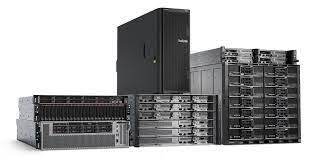Protecting Your Data: The Critical Role of System Server Security in Compliance

In today’s digital age, data is the most valuable asset for any organization. With the advent of cloud computing and the Internet of Things (IoT), the amount of data generated and stored has grown exponentially. However, this valuable asset is under constant threat from cyber-attacks, which can result in data breaches, financial losses, and damage to an organization’s reputation.
System server security refers to the set of measures put in place to secure servers, which are powerful computers that are designed to store, process and manage data. A server’s primary role is to share data and resources with other devices on a network, and it’s the central hub of an organization’s IT infrastructure. System server security involves a range of measures, including firewalls, encryption, access controls, and intrusion detection and prevention systems.
System server security is a complex topic, and there are many aspects to consider when it comes to securing servers. In addition to firewalls, encryption, access controls, and intrusion detection and prevention systems, there are many other important factors to consider.
Se also : BulletinPrime Updates
For example, server security can also involve physical security measures to protect against theft, damage, or unauthorized access.
Another aspect of system server security is the use of security protocols and best practices. These can include guidelines for configuring servers, such as hardening the operating system, limiting the use of unnecessary services, and disabling default accounts and passwords. Additionally, security protocols can include guidelines for monitoring servers for unusual activity, such as monitoring system logs for signs of intrusion or suspicious activity.
System server security also involves the management of user accounts and permissions. This can include setting up role-based access controls (RBAC) to limit access to sensitive data to authorized users only.
The importance of system server security for data protection cannot be overstated in today’s digital age. With the increasing prevalence of cyber-attacks, organizations must take steps to secure their servers and protect their sensitive data from unauthorized access.
Data breaches can have significant financial and reputational consequences for organizations. In addition to the direct costs of remediation, such as legal fees and forensic investigations, there can be indirect costs such as damage to an organization’s reputation, loss of customer trust, and decreased revenue. In some cases, a data breach can even result in the bankruptcy of a company.
Therefore, it’s critical to have system server security measures in place to protect sensitive data. These measures can include access controls, encryption, firewalls, intrusion detection and prevention systems, and other security protocols. By implementing these measures, organizations can reduce the risk of a data breach and protect their sensitive data from cyber-attacks.
System server security is also important for compliance with data protection regulations. Many countries have strict data protection laws in place that require organizations to take measures to protect sensitive data. For example, the General Data Protection Regulation (GDPR) in the European Union requires organizations to implement appropriate technical and organizational measures to ensure the security of personal data.
In addition, system server security can also help organizations protect against insider threats. While external cyber-attacks are a major concern, insiders can also pose a significant risk to data security. Insiders can include employees, contractors, and vendors who have access to sensitive data. System server security measures can help organizations monitor access to sensitive data and detect any unusual activity that may indicate an insider threat.
Overall, the importance of system server security for data protection cannot be overstated. By implementing effective security measures and following best practices, organizations can reduce the risk of data breaches and protect their sensitive data from cyber-attacks. Additionally, compliance with data protection regulations can help organizations avoid legal liabilities and reputational damage.
Compliance with Data Protection Regulations
In addition to protecting data, system server security is also essential for compliance with data protection regulations. Many countries have strict data protection laws in place, such as the General Data Protection Regulation (GDPR) in the European Union and the California Consumer Privacy Act (CCPA) in the United States. These regulations require organizations to take measures to protect sensitive data, and failure to comply can result in hefty fines and legal liabilities. System server security can help organizations meet these requirements and avoid the consequences of non-compliance.
Best Practices for System Server Security
To ensure the effectiveness of system server security measures, organizations should follow best practices. These include:
Regular Updates: Server software and applications should be updated regularly to patch security vulnerabilities and prevent cyber-attacks.
Access Controls: Access to the server should be restricted to authorized personnel only, and strong passwords should be used to secure user accounts.
Encryption: Sensitive data should be encrypted to prevent unauthorized access.
Intrusion Detection and Prevention: Intrusion detection and prevention systems should be in place to detect and block unauthorized access attempts.
Conclusion
In conclusion, system server security is critical for protecting sensitive data and ensuring compliance with data protection regulations. With the ever-increasing threat of cyber-attacks, organizations must take steps to secure their servers and protect their data from unauthorized access. By following best practices for system server security, organizations can reduce the risk of data breaches and the associated financial and reputational damage.
Read more: Top Features to Look At Before Buying a Gaming Laptop




